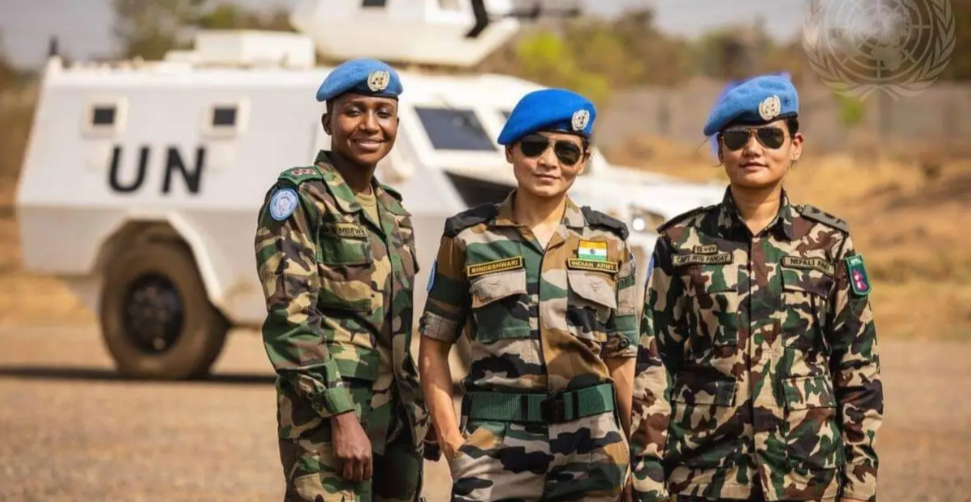Peacekeeping missions: Asians lead in terms of soldiers
Recent incidents involving the UNIFIL have put the spotlight on what various countries contribute to peacekeeping operations. Nepal, India, and Bangladesh alone have provided more than 16,000 military personnel. Conversely, the United States, China and Japan contribute to expenditures, data from three years ago show.
Milan (AsiaNews) – Israeli attacks against the United Nations Interim Force in Lebanon (UNIFIL) mission have put the spotlight back on to United Nations peacekeeping interventions and the contribution various countries make to individual missions.
The five soldiers wounded by Israel came from Sri Lanka and Indonesia, with the latter present in Lebanon with about 1,200 soldiers, the largest contingent, followed by Italy.
Asian and African countries contribute the most in terms of military and police personnel, while the United States and some European countries, together with China and Japan, provide most of the funding.
Peacekeepers are paid by their own governments, which in turn are reimbursed by the United Nations at a standard rate set by the General Assembly (about US$ 1,428 per month per soldier).
United Nations data on the 11 ongoing peacekeeping missions (costing just over US$ 6 billion so far this year) show that, as of last July, Nepal, India, and Bangladesh sent about 17,500 personnel abroad, with more than 16,000 soldiers.
In addition to troops, police staff, mission experts, and other coordination staff, who often wear civilian clothes, also participate in UN peacekeeping missions.
Nepal leads in terms with 6,119, followed by Rwanda, with 5,876 (4,679 military personnel). China is in eighth place for personnel, with 1,801 people (including 1,711 soldiers), behind Indonesia, Ghana, and Pakistan.
The United States has committed only 25 people, according to July data, most of whom are involved with the United Nations Multidimensional Integrated Stabilisation Mission in the Central African Republic (MINUSCA)[*] and the United Nations Mission in South Sudan (UNMISS) as mission staff and experts. One US police agent is deployed with the United Nations Integrated Office in Haiti (BINUH).[†]
Australia and Japan have no military staff engaged abroad. Canada has sent nine police agents to the Democratic Republic of Congo, while Italy, apart from the contingent of about a thousand soldiers in Lebanon, has deployed four police agents to Cyprus. France has 566 soldiers in Lebanon and two police agents in the Congo.
UNIFIL is a bit of an exception; for historical reasons, soldiers from 50 countries have been deployed, including many Europeans. After the Indonesian and Italian contingents, the countries that contribute the most are India, Nepal, Ghana, and Malaysia, Spain, France, and China.
Over the recent past, Western countries have reduced their contingents in conflict areas. Peacekeeping operations do not require soldiers to take sides for or against one of the parties in the conflict, but the latter must give their consent to for a UN peacekeeping presence. UN mandates provide only for the use of force in self-defence in the event of direct armed attacks.
In terms of expenditures, the situation is reversed. According to 2020-2021 data (budget estimates are released every three years), the United States contributed 27 per cent to the cost of peacekeeping missions, followed by China (15 per cent), Japan (8 per cent), Germany (6.09 per cent), the United Kingdom (5.79 per cent), France (5.61 per cent), Italy (3.30 per cent), the Russian Federation (3.04 per cent), Canada (2.73 per cent), and the Republic of (South) Korea (2.26 per cent).
[*] Mission multidimensionnelle intégrée des Nations unies pour la stabilisation en Centrafrique.
[†] Bureau Intégré des Nations Unies en Haïti.







.png)










